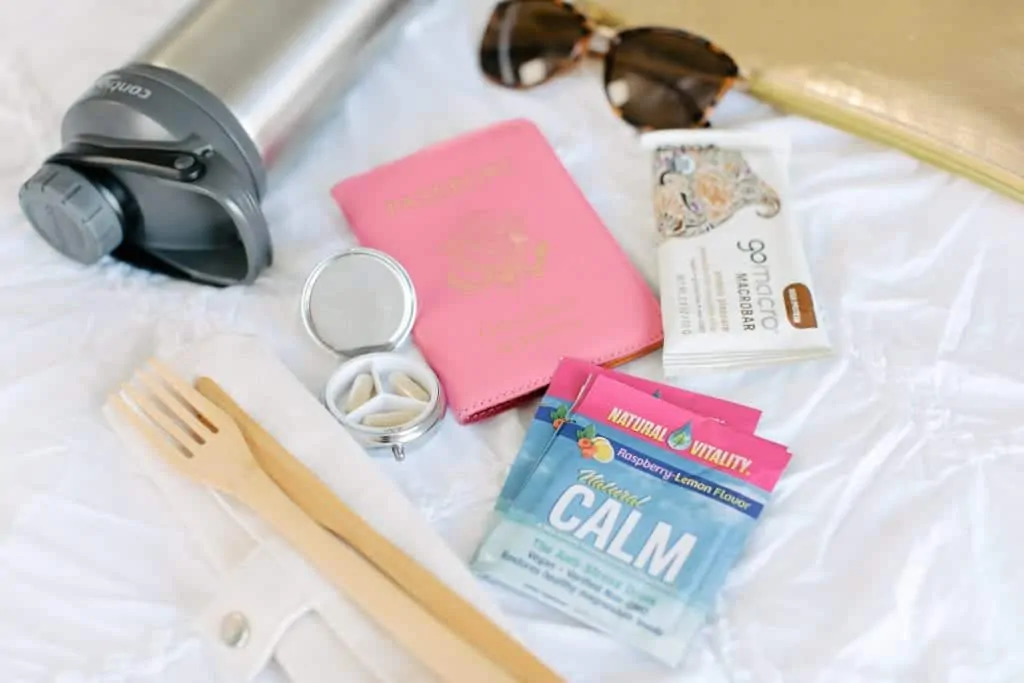
Traveling is a great way to experience new cultures, have fun and make memories! This post shares tips for managing IBS symptoms while traveling.
I absolutely adore traveling. It is fun to experience new cultures, try new foods, meet new people, and get away from normal life (although I love my normal everyday life too!). Recently, Brian and I have had quite a bit of travel (we traveled to Thailand, Waco, Chicago, and took a cruise all from November through March) in our schedules the last few months and we are heading into a season of travel these next few weeks. Several of you have asked me about traveling with IBS and managing symptoms while trying new foods or not being in control of my foods.
Tips for Managing IBS While Traveling
This is a great question, but I will be honest in saying the response is a bit tricky because IBS is very individual to the person dealing with it. We all have different triggers, different foods that make us feel our best, and may be at different points in our journey with IBS. I want to do my best to provide some advice for managing IBS symptoms while traveling, but I will first say that I am in a season where I am experiencing less symptoms and enjoying more food freedom. That makes traveling a whole lot easier and more enjoyable!
Talk with your doctor
My first tip is to speak with your doctor or digestive health specialist about coming up with a symptom management plan that works for you. It may be helpful to take some of the tips and suggestions from this post and ask your doctor about adding them into your regiment. Please view this post as general advice that may help rather than a specific post that guarantees results or relief. Treatment is not a one size fits all for IBS or any disease.
Probiotics
Probiotics are specific kinds of bacteria and some kinds of yeasts that provide health benefits when consumed. The Clinical Guide to Probiotic Products is a helpful tool that identifies the specific strains of bacteria that may be helpful according to specific conditions. For instance, different strains of probiotics would be helpful for IBS-C vs IBS-D. Talking with your doctor about which type of probiotic may be beneficial for you could be a helpful tool in symptom management, and may be helpful to include in your routine while traveling and while at home.
Probiotics have helped with my IBS symptom management, so I found this adorable pill case to keep with me in my purse. It is small, so it doesn’t take up a ton of space even in a smaller purse or clutch. For me, saving space is huge while traveling! (and having items that are functional and cute is always a plus!)
Digestive Enzymes
I’ll start by saying that more research is needed when it comes to linking digestive enzymes with symptom management for IBS. If you are interested in trying them, I suggest talking with your doctor to see if he/she thinks this could be a helpful tool for you.
Digestive enzymes are proteins that help the body undergo chemical reactions to digest food. There are many different kinds that our bodies naturally produce. The enzymes help break down the food so our body can then absorb the nutrients. For more details on Digestive Enzymes and IBS, Medical News Today has a great article linking to some research.
Personally, I have found that digestive enzymes help alleviate symptoms when traveling and I am enjoying a lot of food that contains ingredients I am less familiar with. When taking digestive enzymes, timing is important so make sure you take them right before your meal as opposed to during or after for maximum benefit.
Pack Your Own Snacks
Food is usually more expensive in airports or larger cities, so I find that packing some snacks that I know are satisfying and will help me feel good helps me manage my IBS symptoms, prevents me from feeling hangry (hungry + angry) AND it helps me save a couple dollars.
I typically pack snack and/or breakfast options such as:
- GoMacro MacroBar – the Sunflower Butter + Chocolate and Peanut Butter are both Low FODMAP
- Oats mixed with hemp seeds and chia seeds (I just add hot water and some nut butter)
- Peanut butter and almond butter squeeze packets – my favorite brands are Justin’s and Barney’s
- Nuts and seeds
- Oranges and bananas
Hydrate
Drinking water is important all the time, but when traveling and out of my normal routine, I find that I need to make a more conscious effort to drink water. I always carry a water bottle with me, and I have one that I can attach to my backpack and closes tight. Because you are unable to take liquids through security, I always bring my water bottle empty then go to a restaurant inside the airport and ask them to fill my bottle with water and ice. This is more budget friendly and eco-friendly than purchasing a plastic bottle at the airport!
Right now, I am loving my contigo stainless steel water bottle.
Bring Utensils
Having utensils in my bag has been helpful while traveling, and being on the go in my own city! If you make oats (that you packed…see above) in your room, it’s easier to simply use your own utensils rather than hunt down an extra spoon at the front desk or the nearest restaurant with carry out. I found this bamboo utensil set that is eco-friendly and reusable in a simple travel case on amazon and LOVE packing it to go.
Stick to Your Routine
For me, being active in the morning, drinking lots of water, taking my probiotic first thing, and taking natural calm before bed really help me feel my best while traveling. I worked with a gastroenterologist and a registered dietitian to come up with this plan that works for me, and I encourage you to do the same!
Be Active
This is especially important for long flights and long road trips. When possible, take breaks to walk, stretch and move your body. Sitting still for too long is not ideal for individuals with a sensitive digestive system. Movement and exercise helps stimulate intestinal movement, which will hopefully help you maintain regularity and decrease symptoms.
Overall, travel should be a fun and enjoyable experience.
Hopefully, this post sharing tips for managing IBS while traveling gave you some ideas to talk with your doctor about so you can truly ENJOY your next vacation!
Related Posts
Based on this post, here are a few similar ones you should check out.


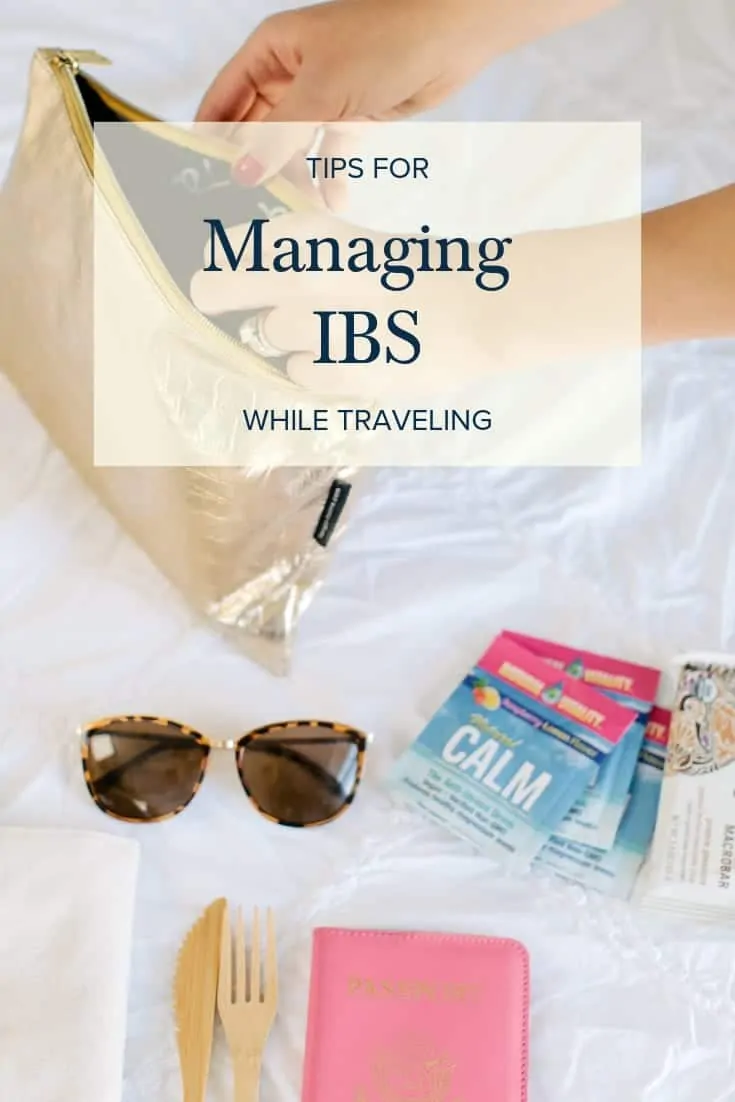
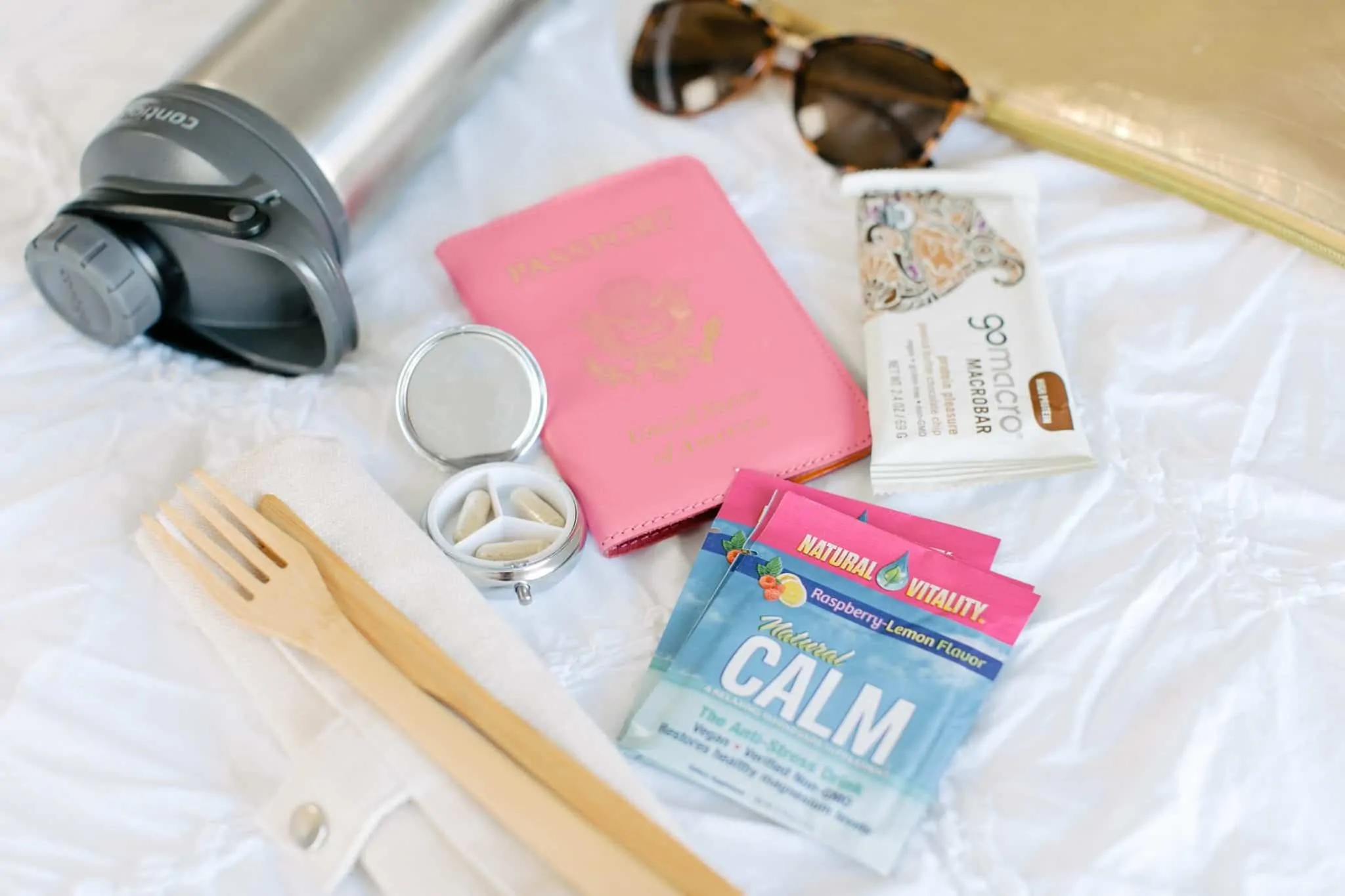
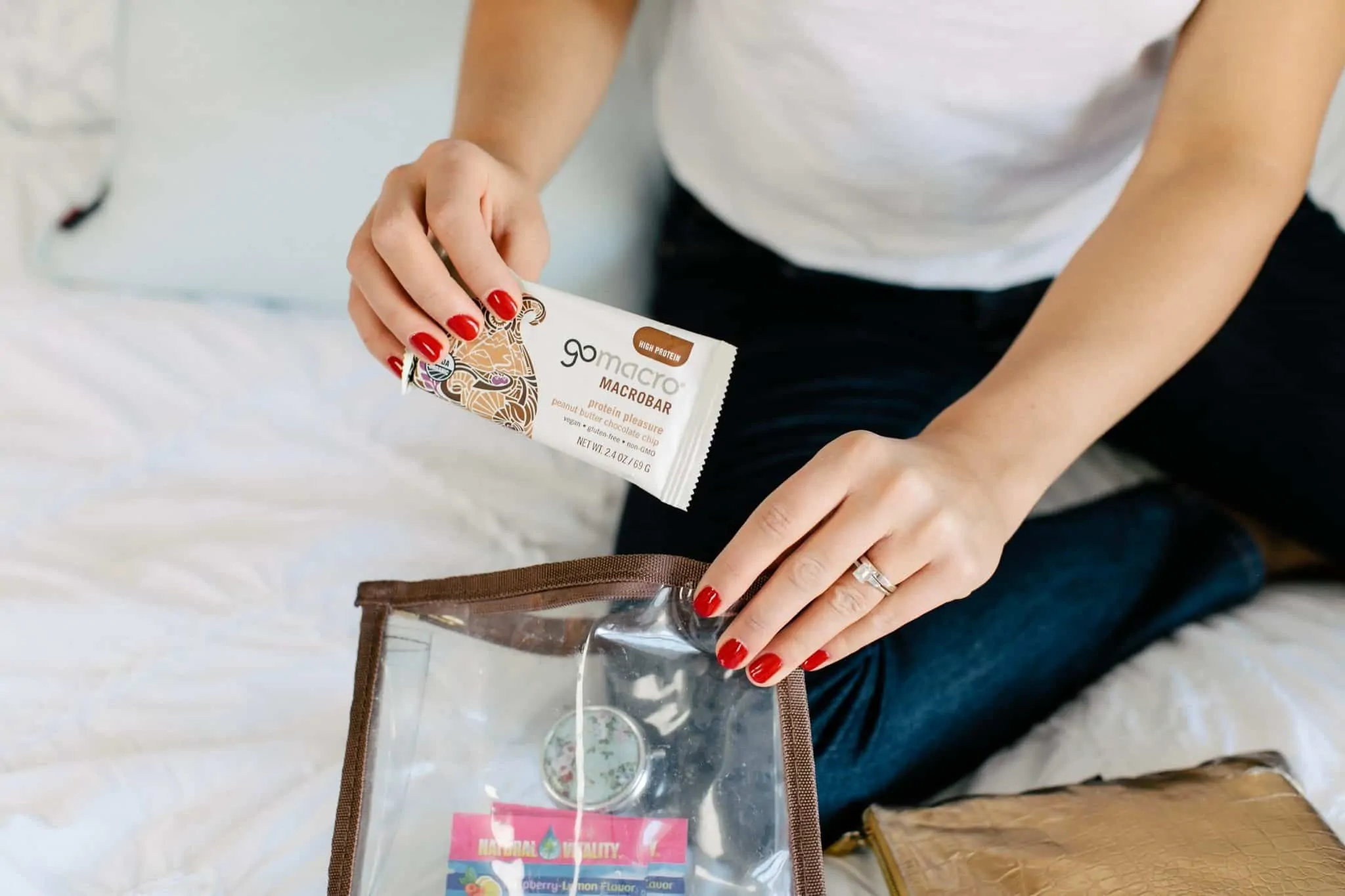
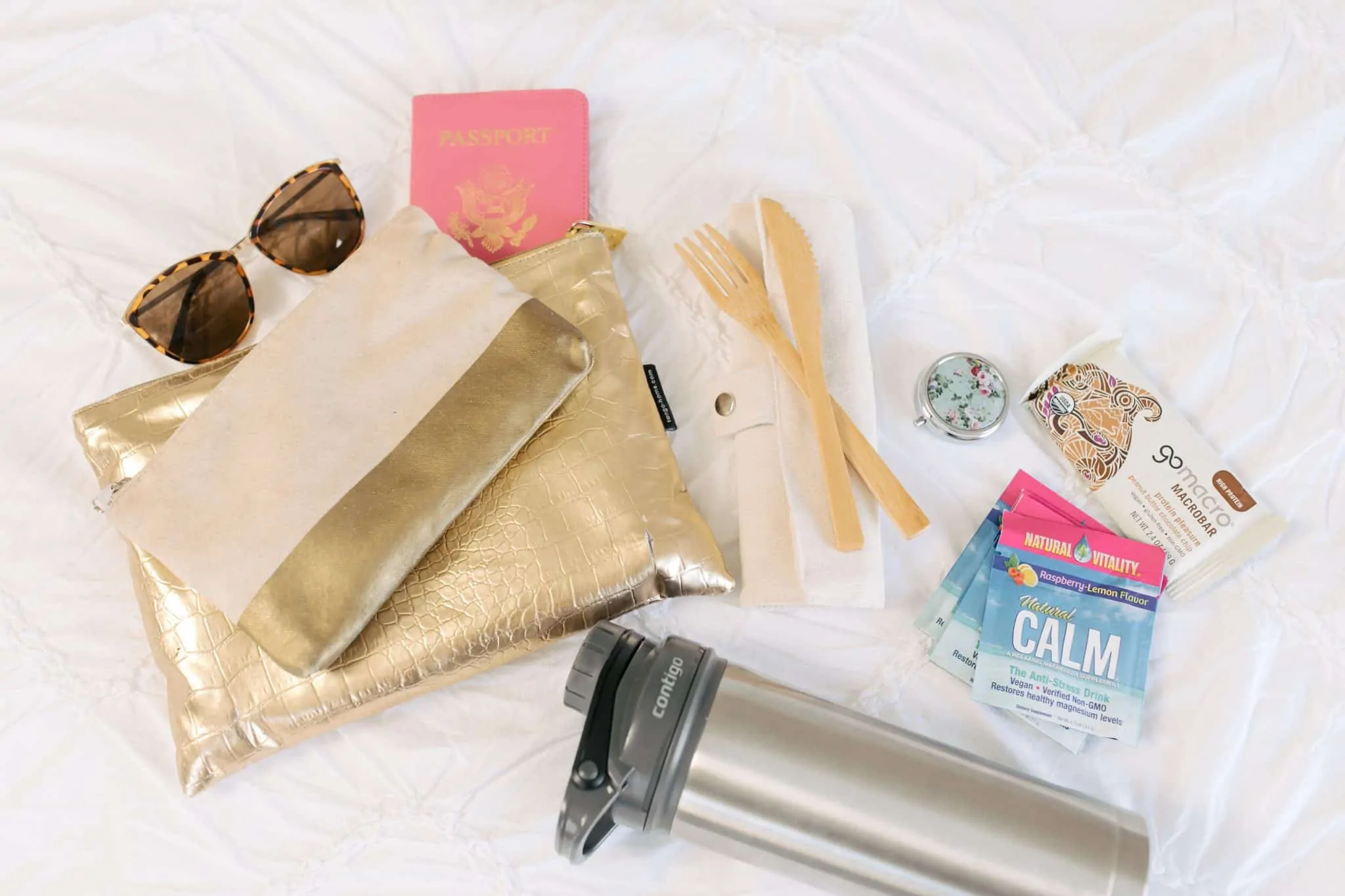
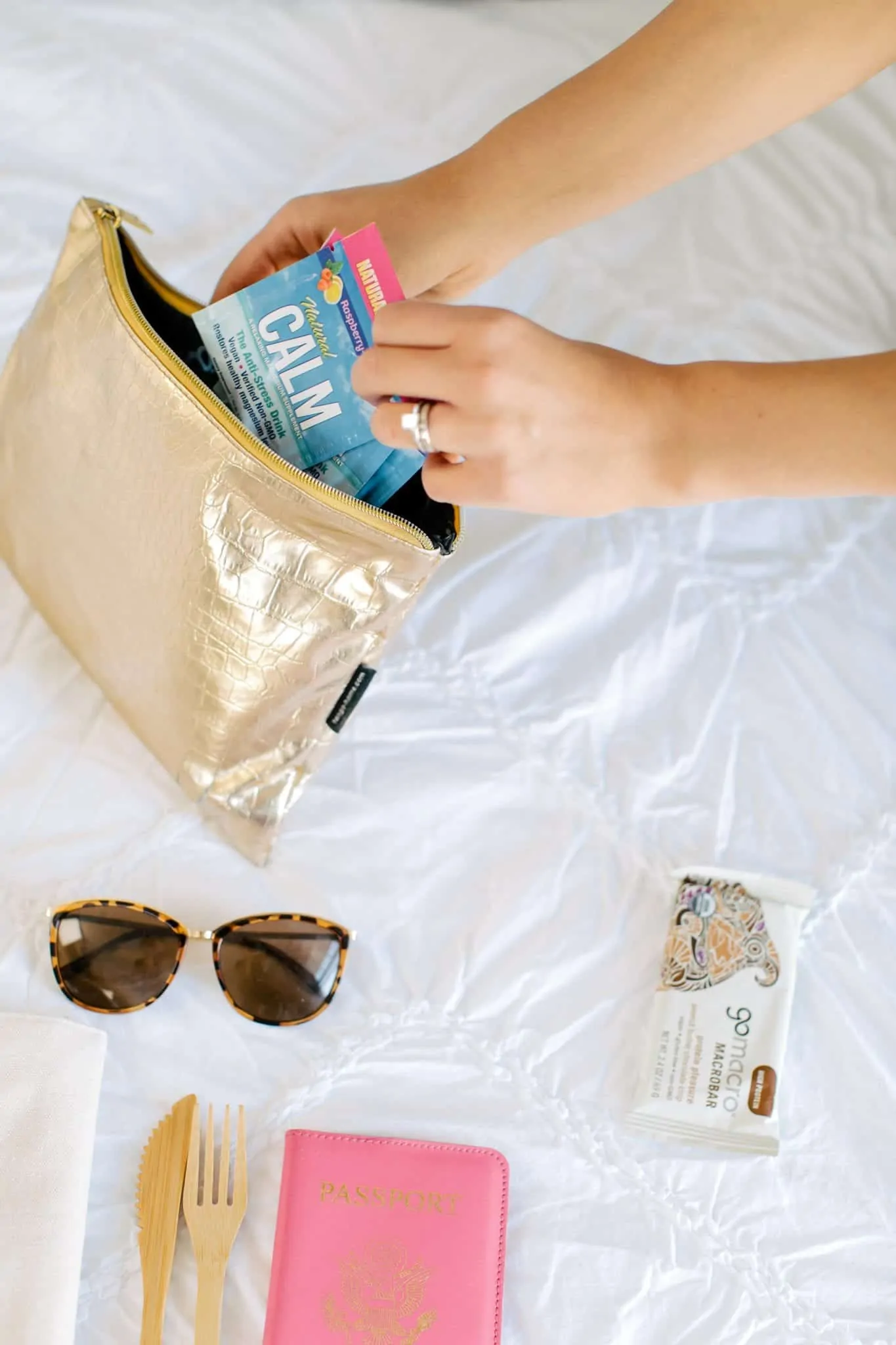

Leave a comment
Great tips! In addition to some of the more common recommendations, like probiotics, BYO snacks, and exercise, I love the bring your own utensils suggestion!
YES! It’s important to be prepared 🙂